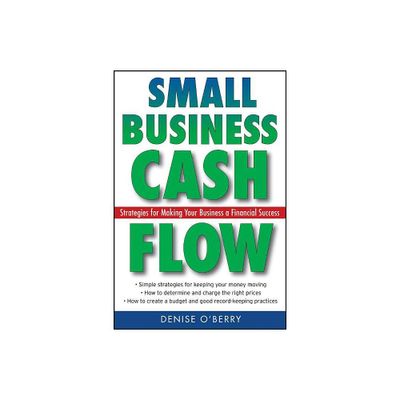Home
Improving Accounting Reliability: Solvency, Insolvency, and Future Cash Flows
Loading Inventory...
Barnes and Noble
Improving Accounting Reliability: Solvency, Insolvency, and Future Cash Flows
Current price: $95.00


Barnes and Noble
Improving Accounting Reliability: Solvency, Insolvency, and Future Cash Flows
Current price: $95.00
Loading Inventory...
Size: OS
*Product Information may vary - to confirm product availability, pricing, and additional information please contact Barnes and Noble
The traditional model for financial statements is so unreliable, maintains Kirkegaard, that even the most meticulously prepared statement cannot give a true and fair view of the financial health of a business. Statements should be dynamic, current, complete, and comprehensible. Based on strong and well-founded criticism of the traditional accounting model, with its guiding concepts of profit and owners' equity, Kirkegaard proposes a model that concentrates on a company's solvency or insolvency at a given time. With that, it becomes possible to employ modern information technology to predict future liquidity problems early on, thus helping to limit or prevent future losses. A challenging, provocative work for professional accountants and their academic colleagues.
Unforeseen, sudden collapses in business and banking are tragic, familiar phenomena. Creditors suffer huge losses and critics cry, Where was the auditor? Ironically, in most cases the balance sheet published prior to the collapse gave no warning signals. Often it showed a nice owners' equity, and thus the auditors failed to sound an alarm in time. Kirkegaard attributes the lack of advance warning largely to the inadequacy of financial statements. They are so unreliable that even the most meticulously prepared statement cannot give a true, fair view of a business's financial health. Statements should be dynamic, current, complete, and comprehensible. Most importantly, instead of focusing on profit and owners' equity, financial statements should concentrate on a firm's solvency or insolvency. It then becomes possible, using modern technology, to anticipate liquidity problems before they occur, therefore limiting or even preventing future losses. This is precisely the essence of the new model Kirkegaard proposes and develops with forceful clarity. His book will prove to be essential reading, not only for professional and academic accountants, but also for investors, corporate management, and skilled observers of the business scene.
Some of the provocative, challenging ideas that Kirkegaard offers in his book:
*The accounting theory which we know at present is in a state of apathy and resistance to change.
*Enterprises which are already insolvent but not yet illiquid are dangerous to their creditors
*It is impossible to accurately describe the financial position of a business enterprise using traditional financial statements
*The concept of time has been a stepchild in accounting theory
*It is wrong to believe that the task of accounting is to determine a firm's financial position. Accounting should be concerned with what
we can say
about the financial position
*The financial statements of the future can be made logically complete, and therefore clean and easy to understand. They can also be made up to date, and used to show the financial situation right now, which will make them reliable.


















